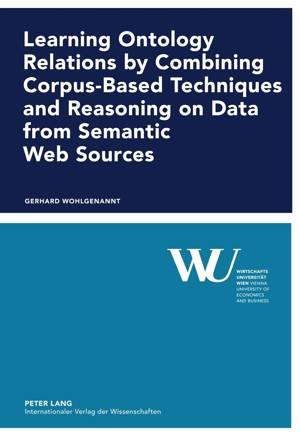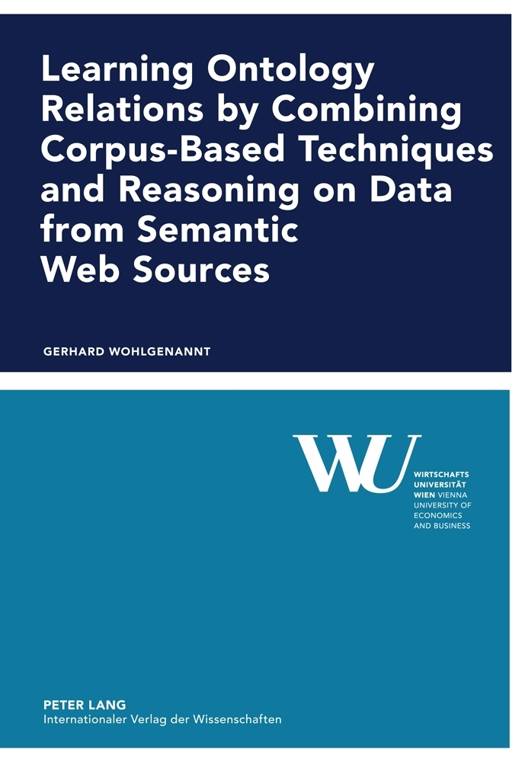
Door een staking bij bpost kan je online bestelling op dit moment iets langer onderweg zijn dan voorzien. Dringend iets nodig? Onze winkels ontvangen jou met open armen!
- Afhalen na 1 uur in een winkel met voorraad
- Gratis thuislevering in België vanaf € 30
- Ruim aanbod met 7 miljoen producten
Door een staking bij bpost kan je online bestelling op dit moment iets langer onderweg zijn dan voorzien. Dringend iets nodig? Onze winkels ontvangen jou met open armen!
- Afhalen na 1 uur in een winkel met voorraad
- Gratis thuislevering in België vanaf € 30
- Ruim aanbod met 7 miljoen producten
Zoeken
Learning Ontology Relations by Combining Corpus-Based Techniques and Reasoning on Data from Semantic Web Sources
Gerhard Wohlgenannt
€ 75,45
+ 150 punten
Omschrijving
The manual construction of formal domain conceptualizations (ontologies) is labor-intensive. Ontology learning, by contrast, provides (semi-)automatic ontology generation from input data such as domain text. This thesis proposes a novel approach for learning labels of non-taxonomic ontology relations. It combines corpus-based techniques with reasoning on Semantic Web data. Corpus-based methods apply vector space similarity of verbs co-occurring with labeled and unlabeled relations to calculate relation label suggestions from a set of candidates. A meta ontology in combination with Semantic Web sources such as DBpedia and OpenCyc allows reasoning to improve the suggested labels. An extensive formal evaluation demonstrates the superior accuracy of the presented hybrid approach.
Specificaties
Betrokkenen
- Auteur(s):
- Uitgeverij:
Inhoud
- Aantal bladzijden:
- 222
- Taal:
- Engels
- Reeks:
- Reeksnummer:
- nr. 44
Eigenschappen
- Productcode (EAN):
- 9783631606513
- Verschijningsdatum:
- 13/05/2011
- Uitvoering:
- Hardcover
- Formaat:
- Genaaid
- Afmetingen:
- 150 mm x 211 mm
- Gewicht:
- 476 g

Alleen bij Standaard Boekhandel
+ 150 punten op je klantenkaart van Standaard Boekhandel
Beoordelingen
We publiceren alleen reviews die voldoen aan de voorwaarden voor reviews. Bekijk onze voorwaarden voor reviews.











